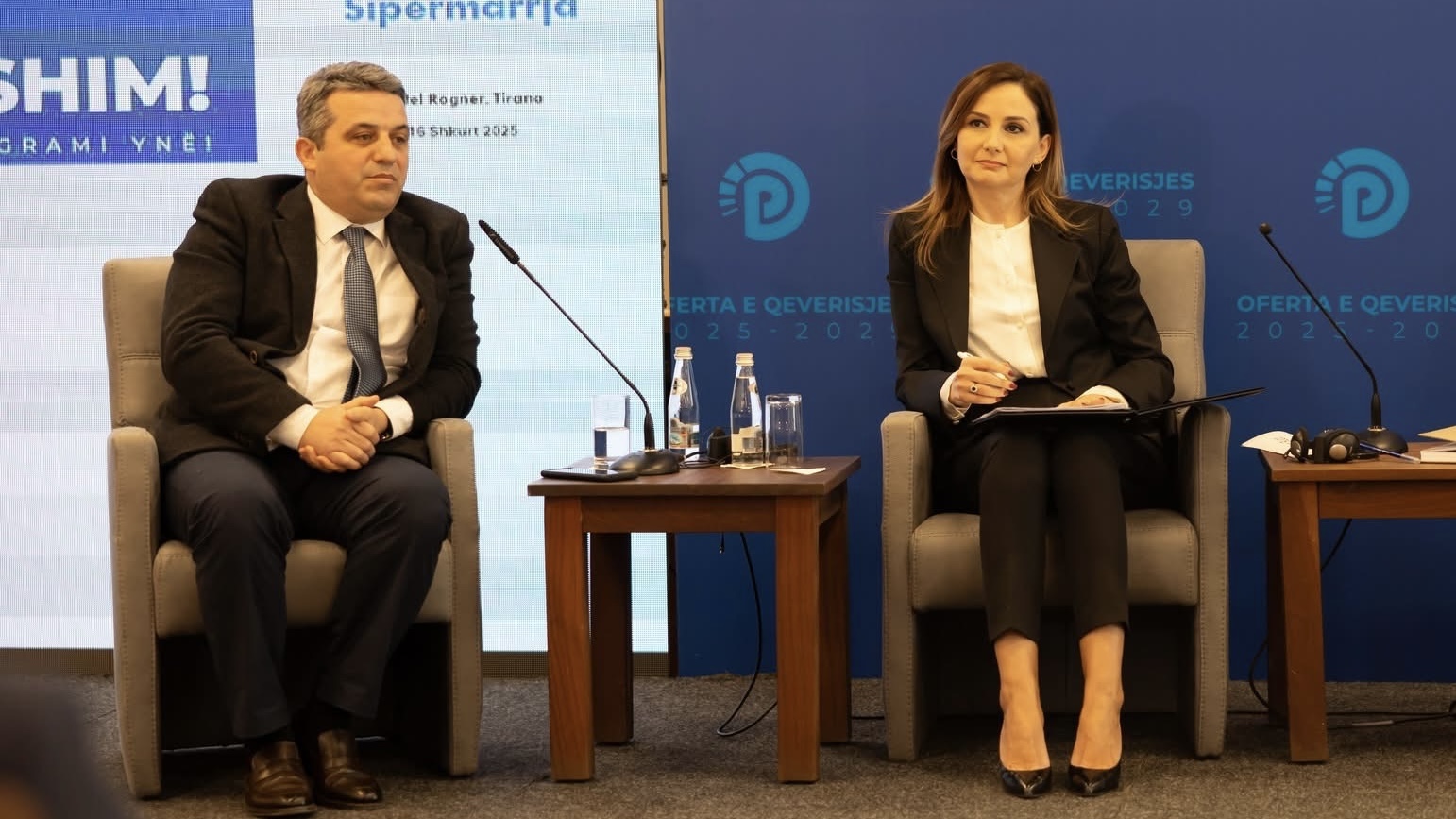Jorida Tabaku unveils Democrats’ economic plan, promises fiscal stability and fair competition

During the presentation of the Democratic Party’s (DP) economic program, MP Jorida Tabaku outlined a vision for a free, competitive, and transparent economy, emphasizing tax stability, the elimination of monopolies, and greater opportunities for entrepreneurs. She criticized the current government’s economic model, calling it unfair and unsustainable, and pledged that PD would restore market competition and end preferential treatment for politically connected businesses.
Why is this important: Tabaku’s speech marks one of the most detailed economic proposals by PD ahead of the upcoming elections, positioning the party as a champion of predictability and economic fairness. The program emphasizes tax reductions, regulatory simplification, and limiting government intervention in business, setting the stage for a sharp political debate over Albania’s economic future. However, with Albania’s GDP having doubled over the past decade under the Socialist government and the country experiencing significant economic growth, convincing voters of the need for an alternative economic model may prove challenging.
Context: According to the Democrats Albania’s economy has long struggled with bureaucratic inefficiencies, corruption, and an uneven playing field for businesses. DP’s economic plan aims to address these concerns by introducing a stable Fiscal Code, cutting taxes, and ensuring fair market competition. Its key proposals include:
A new fiscal code: One of the cornerstones of PD’s economic platform is the introduction of a new Fiscal Code, which Tabaku described as a “Constitution for Taxes.” This code, she argued, would end the frequent, politically driven changes to tax laws that have created instability and opportunities for corruption. She stressed that PD’s goal is to create a tax system that fosters investment and economic growth.
“The Fiscal Code will set clear, written principles for all tax policies, eliminating arbitrary changes that serve only a select few,” Tabaku stated.
Key tax policies proposed in the DP Fiscal Code include:
- A 10% flat tax for both individuals and businesses, replacing the current progressive tax system.
- Elimination of arbitrary tax exemptions, which have been used to benefit select businesses.
- A clear legal framework for tax inspections, ensuring they are based on risk assessment rather than government pressure.
- Automated VAT refunds to eliminate delays and bureaucratic interference.
Less government, more competition: Tabaku strongly criticized state intervention in the economy, particularly through clientelist contracts and government subsidies that favor only a select few businesses. She pledged that PD would put an end to this system and allow fair market competition to flourish. Tabaku also vowed to lower energy costs for manufacturing and industrial businesses to encourage domestic production and make Albanian goods more competitive.
“The biggest obstacle to entrepreneurs in Albania is the state itself,” she argued, promising to end politically motivated contracts and monopolistic practices.
DP’s plan includes:
- Eliminating corrupt PPP contracts and reviewing all existing state-funded projects.
- Reducing government bureaucracy, particularly in business permits and regulatory approvals.
- Digitizing business-related services to increase transparency and reduce corruption.
- Reforming property rights to encourage long-term investments and formalize the economy.
An economy for a European future: According to Tabaku Albania’s economy must break free from monopolies and political favoritism if it is to successfully integrate into the European Union. She criticized the Socialist government for favoring a small circle of businesses, arguing that DP’s plan would create opportunities for all entrepreneurs.
“We cannot have an economy that works for only 100 businesses while everyone else is excluded. Albania needs an open, competitive economy where success is based on merit, not connections.”
PD’s key economic transformation priorities include:
- Deregulation – Reducing unnecessary bureaucracy that slows business growth.
- Attracting Foreign Investment – Creating a transparent and business-friendly climate.
- Revitalizing Industry – Supporting domestic industries to reduce reliance on imports.
- Public Sector Restructuring – Cutting unnecessary government expenditures and improving efficiency.
What else: By promising lower taxes, reduced bureaucracy, and greater business freedoms, DP is trying to appeal to entrepreneurs, professionals, and small business owners who they think have grown frustrated with Albania’s economic environment.
“A strong economy means a strong Albania. This is our commitment, and we will not stop until it becomes a reality.” – Jorida Tabaku.


